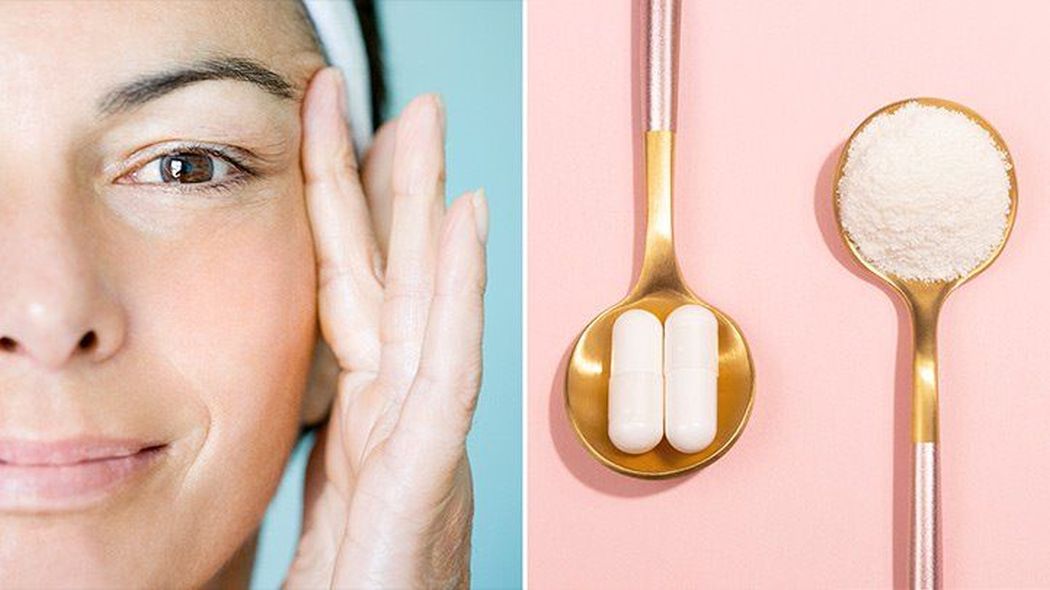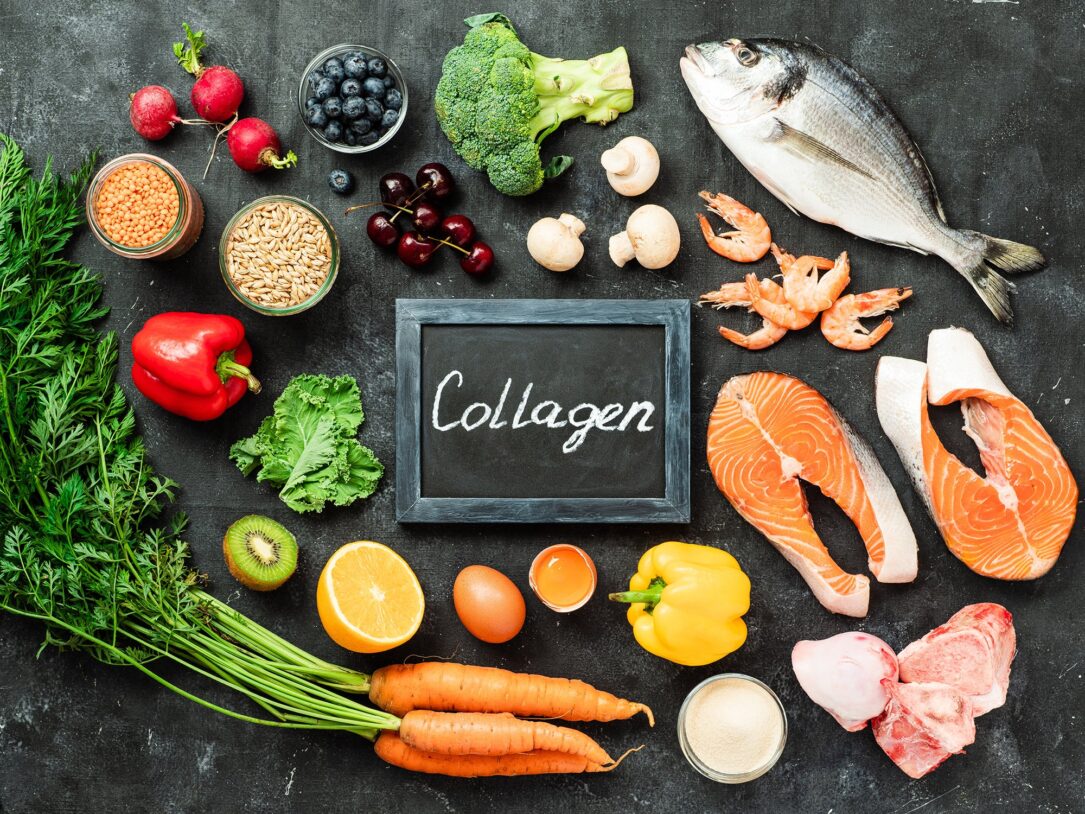Collagen is a type of protein found naturally in the body that gives your skin strength and elasticity. As we age, our body’s collagen production decreases, leading to wrinkles and other signs of aging. Taking a supplement may help prevent and reduce some of these age-related issues. Supplementing can also help improve the appearance of your skin, hair, and nails but can also improve the function of joints and bones.
There are two main types of supplements available on the market today – hydrolyzed and regular collagen. Hydrolyzed collagen is broken down into smaller molecules for better absorption by the body. Regular collages do not undergo this process so it may not be as easily taken up by the body. Therefore, the hydrolyzed compound is typically considered more effective.
Benefits for Skin

Source: freepik.com
Collagen helps your skin rebuild into a healthier version of itself. It attracts and binds water molecules within the upper layers of our skin which keeps it supple, hydrated, and smooth. As we age our body produces less collagen which results in less moisture along with weaker structural support which can lead to wrinkles or sagging on the face. According to atomy, increasing your collagen levels can help keep your skin looking young by replenishing any lost moisture levels, as well as improving the overall structure of your skin cells so that they look more radiant.
This substance is an essential building block for healthier-looking skin as it helps condition it while diminishing any imperfections that may be visible on the surface such as wrinkles or fine lines from aging or prolonged UV exposure from the sun. Improving the hydration level within our tissues increases resistance to external factors that are likely to cause damage such as free radicals or environmental pollutants found in the air. This can help reduce signs of aging or sun damage on the surface for a smoother complexion with greater clarity for a more refreshed look with fewer flaws becoming visible over time if done consistently enough.
How to Take it?
Let’s take a look at some of the best ways to take this supplement so you can start seeing the results.
Oral Supplements
Capsules are the most popular form of collagen supplement and are available in a range of doses. The majority of capsules consist mainly of hydrolyzed powder, which has been broken down into small peptides that make it easier for your body to absorb. Depending on the type you choose, they can also contain additional ingredients such as vitamins, minerals, herbs, and other compounds that are supposed to help improve skin health.
Powders can also be added to any type of liquid you like — from a smoothie to yogurt or coffee. They usually have additional ingredients such as natural sweeteners and flavors, so be sure to check the label before making a purchase.
Liquids are another popular form of supplementation and often come in pre-mixed bottles with herbal extracts or flavors added for taste. These liquids usually contain hydrolyzed collagen peptides along with other beneficial substances like hyaluronic acid, which helps maintain skin hydration and elasticity; glucosamine, which helps maintain healthy joints; or chondroitin sulfate, which is often used to help reduce joint pain due to osteoarthritis.
Topical Creams

Source: forbes.com
The topical application of collagen cream is one of the most popular ways to take this structural protein. It is a great approach for those who don’t want to drink an inconvenient liquid mix or swallow supplements. Applying cream will help to increase your skin’s elasticity, slowing the wrinkling process and reducing the appearance of marks and lines on your skin over time.
The creams also have other beneficial effects such as moisturizing, which can improve your skin tone and texture. However, one limitation may be that it takes longer for skin creams to take full effect (a few weeks) than it does when taking collagen orally (you should be able to start seeing improvement with your skin about 2-4 weeks later). Make sure you buy a quality product, as many are not properly formulated for the penetration required for effectiveness when applied topically on the skin.
Injections
Injectable collagen has been popular for many years and, despite FDA warnings about the risk of disease transmission, it is still widely used. Injections involve the use of a hypodermic needle to inject the substance into designated areas beneath the skin. This process is said to improve skin volume and hydration. Injections are also believed to be effective in reducing wrinkles and may even reduce scarring.
The most commonly used type of injectable collagen is bovine-derived, which is derived from cows or other animals; this form has recently been linked with an increased risk of developing prion diseases due to the potential presence of infectious agents, such as bovine spongiform encephalopathy (BSE). The U.S. Food & Drug Administration warns that there are some risks associated with collagen injection treatments and has recommended further testing and studies before further treatment with these injections can be allowed.
Foods Rich in Collagen

Source: naturemade.com
There are many different types of food that can provide your body with an ample amount of collagen. These foods typically contain precursor molecules like vitamin C, copper, and proline which are needed for forming strong collagen networks within the tissue.
Foods rich in these precursor molecules may include fruits such as kiwi and oranges, vegetables like spinach for its high proline contents, nuts such as almonds and hazelnuts, whole grains, legumes, and fish such as tuna.
Additionally consuming foods high in amino acids will help ensure you have enough of the building blocks needed for creating collagen networks. Foods high in amino acids can include eggs and poultry for methionine, red meat, dairy products for cystine, or pistachios or pumpkin seeds for glycine.
Conclusion
In conclusion, the best way to take collagen for skin health is to take it as a supplement in pill or powder form. This will allow your body to absorb the most amount of collagen available to it. Additionally, consuming an abundance of nutrient-rich foods (specifically vitamin C and foods high in collagen) will also support the health of your skin and protect it from premature aging. Ultimately, incorporating a healthy diet and including a daily dose of collagen in the form of supplements or powder is the best way to enhance and support skin health.


















